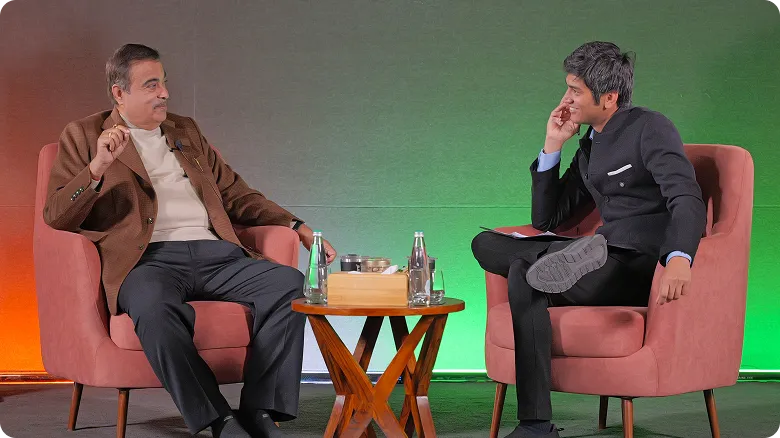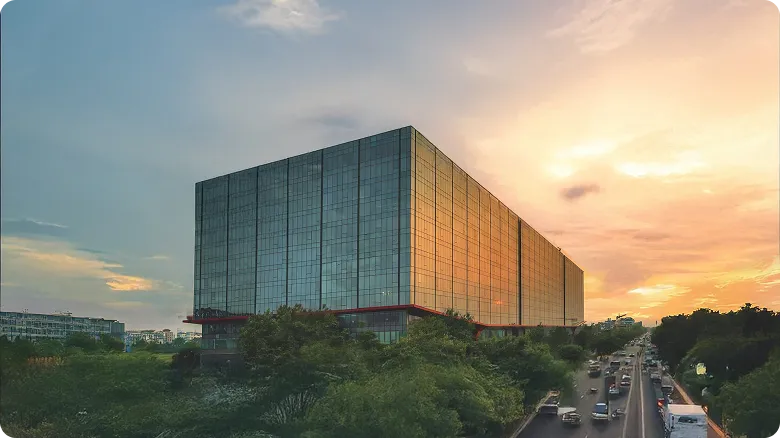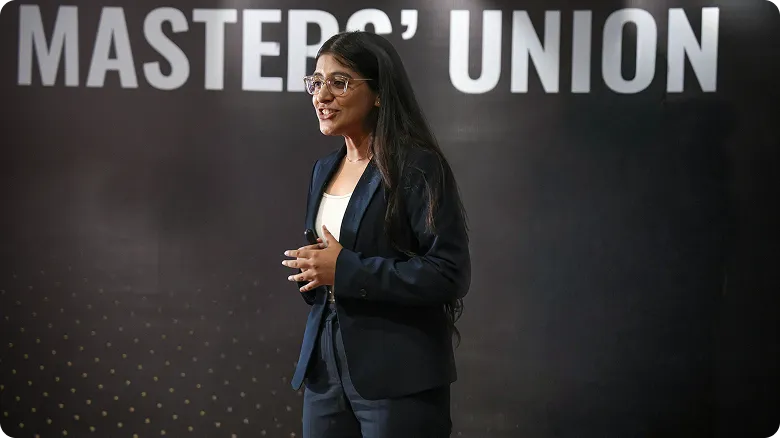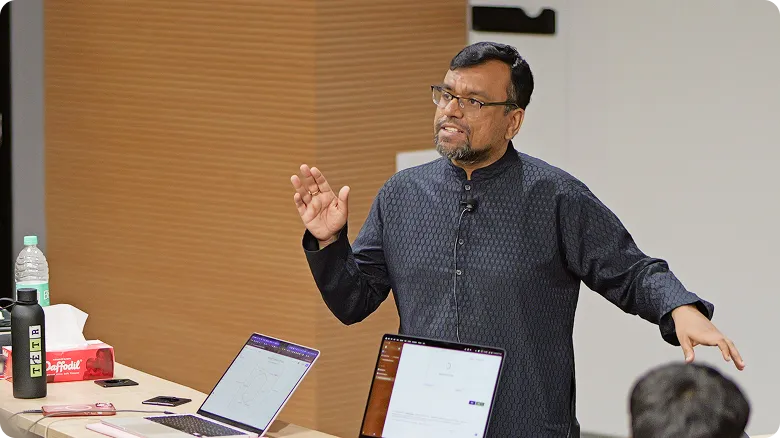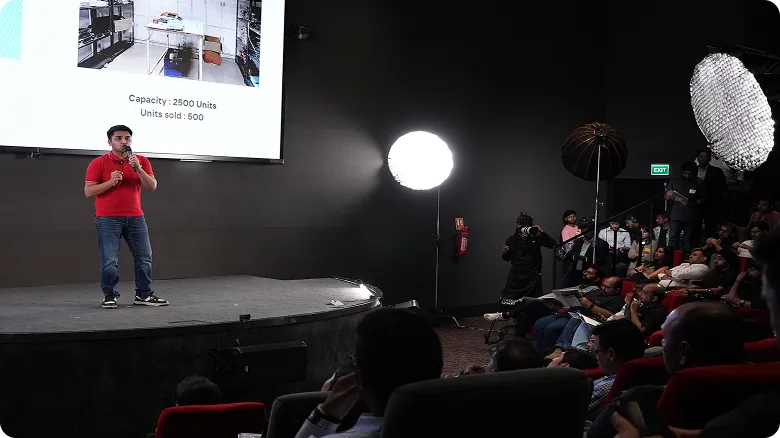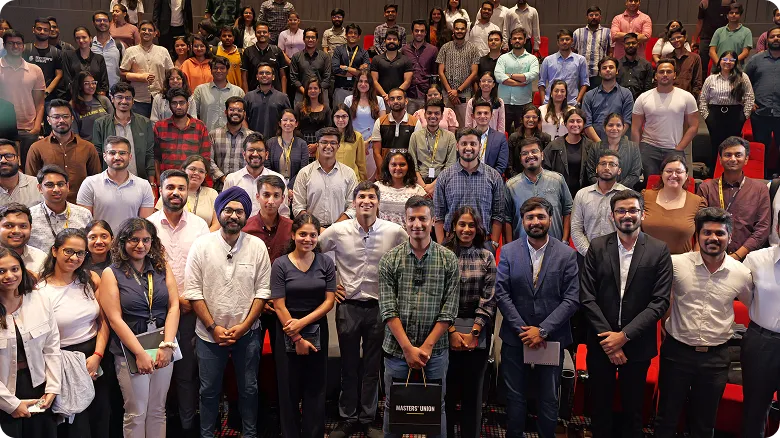Undergraduate
Undergraduate (Global)
Postgraduate
PGP in Technology and Business Management
PGP in Technology & Business Management
(Young Leaders Cohort)
PGP in Human Resources & Organisation Strategy
PGP in Sports Management & Gaming
PGP in Applied AI & Agentic Systems
PGP in UI/UX & Product Design
PGP in Sustainability & Business Management
PGP Bharat
Executive
Family Business
Careers
Innovations
Faculty
MU Ventures
Enterprise Education
Student Life
Jobs
Become a Master
events
For Companies
Blog
MBA Insights
Future of Business Education: Why MBA Courses Must Adapt to a New Era
January 9, 2025

Masters’ Union postgraduate programme is no longer just about traditional lectures and case studies. Today, business education is about real-time impact, access to founder-led mentoring, and creating an ecosystem where aspiring professionals regardless of age or background can learn, build, and lead. As the future of business education unfolds, there’s a growing need for learning experiences that fuel entrepreneurship, adaptability, and hands-on business building.
This blog explores how forward-looking institutions like Masters’ Union are turning MBA programmes into incubators of innovation equipping learners with tools to thrive in dynamic markets. Whether you're a career switcher, a startup enthusiast, or someone exploring the best online MBA programmes, this article uncovers how you can craft your entrepreneurial path with the right knowledge, network, and tools.
Future of Business Education Global Trends
Future of Business Education is about personalization, agility, and purpose-driven learning.
Let’s explore what’s reshaping the business school experience today:
Business Education for a Global Workforce
Business Education is shifting from textbook theory to real-world impact. Institutions are:
-
Including global case studies with emerging market challenges
-
Encouraging cultural fluency for global collaborations
-
Integrating international faculty and exchange programmes
Masters’ Union as a Business Schools’ International Exposures
Business schools like Masters’ Union blend global expertise with local relevance:
-
Cross-border project work
-
Multicultural peer groups
-
Access to founder-led masterclasses across industries
Online MBA Schools That’s Driving Accessibility
Online MBA schools make executive education flexible and widely accessible without compromising quality and career.
Unlocks Career Pivots with Masters’ Union Executive Programmes
Masters’ Union offer PGP Rise programmes that are executive programmes (hybrid) designed for working professionals for career growth. This online MBA-equivalent certification offer:
-
Personalized learning through AI-powered platforms
-
Immersive experiences with simulations, VR, and AR
-
Access to global faculty, mentors, and peer networks
Top Online or Hybrid MBA Programmes Adapt to Modern Learners
Top online MBA programmes provide:
-
Modular formats and specializations in fintech, stock market, capital market, data science
-
Hands-on capstone projects with real startups
-
Integration with startup incubators for new ventures

Finance Course Online and Decision-Making Power
Finance course online offerings are enabling students to manage and scale business finances with confidence.
Online Finance Classes Build Strategic Skills
Online finance classes now include:
-
Predictive analytics for financial planning
-
Real-time budget management with SaaS tools
-
Blockchain and cryptocurrency modules
MBA Programme Designed for Entrepreneurial Impact
MBA program structures have evolved beyond traditional tracks.
MBA Courses Go Beyond Theory
MBA courses in schools like Masters’ Union offer:
-
Startup studios for product validation
-
Founder-in-residence sessions
-
Access to early-stage VC feedback
Traditional Marketing vs Modern Strategy
Traditional marketing still holds value but is being revamped.
Traditional Marketing Methods Transformed
Traditional marketing methods are now blended with:
-
Digital storytelling and brand ecosystems
-
Influencer and content-driven funnels
-
ROI measurement via analytics dashboards
MBA Courses Built For Evolving Industries
MBA courses now provide:
-
Stackable credentials and micro-certifications
-
Access to industry mentors post-graduation
-
Lifelong alumni learning hubs
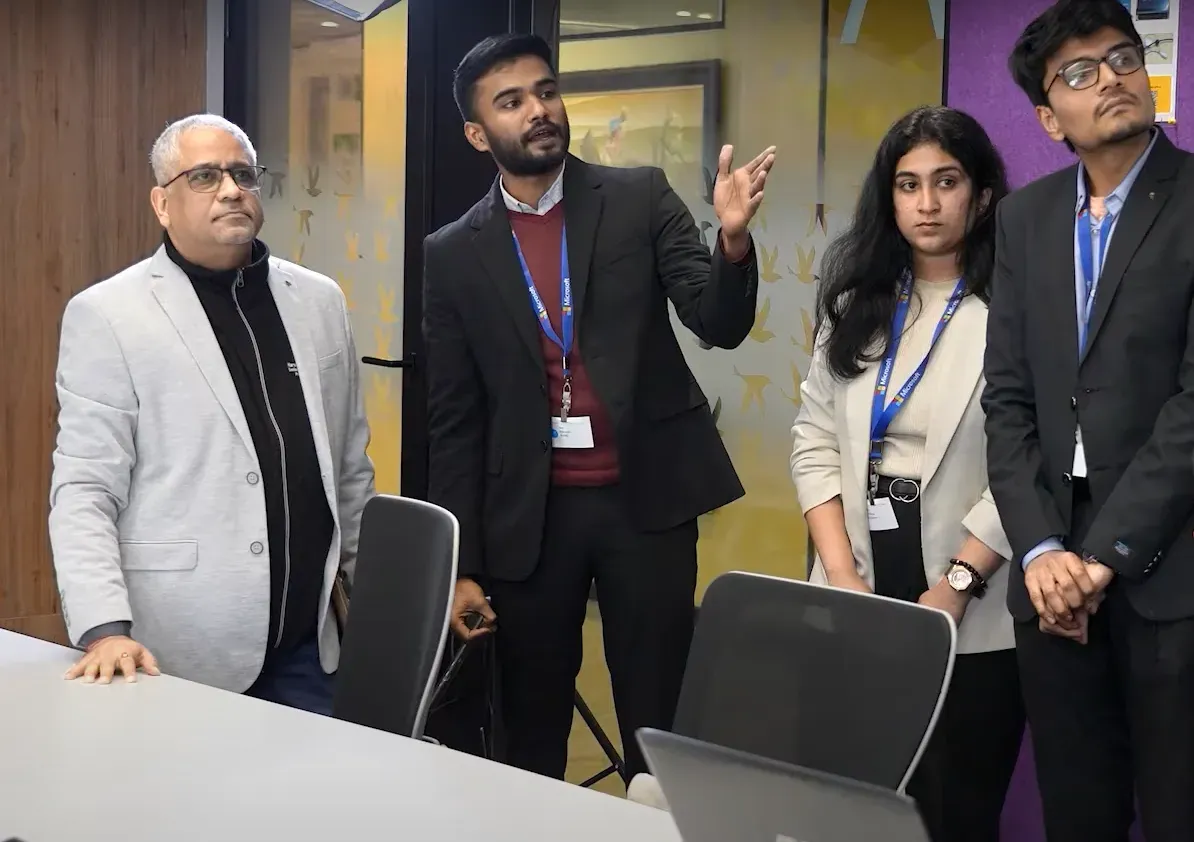
Future-Ready Learners
Future of business education is inclusive, experiential, and rooted in real-world impact. Here’s why this matters:
-
Learn from real founders and practitioners
-
Leverage online mba schools to study at your own pace
-
Gain actionable skills through finance course online modules
-
Bridge global insights with local execution
-
Use mba courses to launch or scale your own venture
-
Build a strong network through cohort-based collaboration
-
Transition from traditional marketing to digital-first brand strategies
-
Experience mentorship and startup exposure at institutions like Masters’ Union
If you're exploring how to turn curiosity into business acumen, or ideas into action, this is your moment. The tools, mentors, and platforms are already here designed to help you thrive in the evolving business landscape.
Visit our YouTube channel to explore more: Life At Masters’ Union | Explained in 3 Minutes (youtube.com).
FAQs on the Future of Business Education
1. What are the biggest trends shaping the future of business education?
The future of business education is defined by immersive technologies, globalized curricula, entrepreneurial focus, and sustainability. MBA programs now include startup incubation, ESG frameworks, and real-time founder mentorship, allowing students to build and scale ventures while learning from real business scenarios and global market dynamics.
2. How do online MBA schools enable practical and flexible learning?
Online MBA schools now deliver hybrid learning models that blend live sessions with self-paced modules, allowing learners to balance work, life, and study. These programs often provide access to startup labs, industry mentors, and real-time business challenges offering both theoretical depth and practical application in one seamless experience.
3. Why is sustainability becoming a core pillar in MBA programs?
Sustainability is now central to MBA programs as students demand courses that address climate, equity, and responsible leadership. Topics like ESG metrics, circular economies, and social innovation are built into core curriculum to prepare students to lead purpose-driven ventures and tackle the world's most pressing challenges.
4. How are finance course online modules transforming business decision-making?
Finance course online content now includes tools like predictive analytics, real-time dashboards, and startup valuation techniques. These modules enable students to make smarter, data-driven decisions in budgeting, investing, and forecasting crucial for anyone building or scaling a business in a high-stakes, fast-moving market.
5. What makes Masters’ Union’s MBA program stand out from traditional models?
Masters’ Union’s MBA program combines academic rigor with startup-focused learning led by real founders. Students access a startup studio, mentorship from industry leaders, and project-based modules turning the classroom into a launchpad for innovation, and offering a holistic, founder-first ecosystem to build, test, and grow new ventures.

